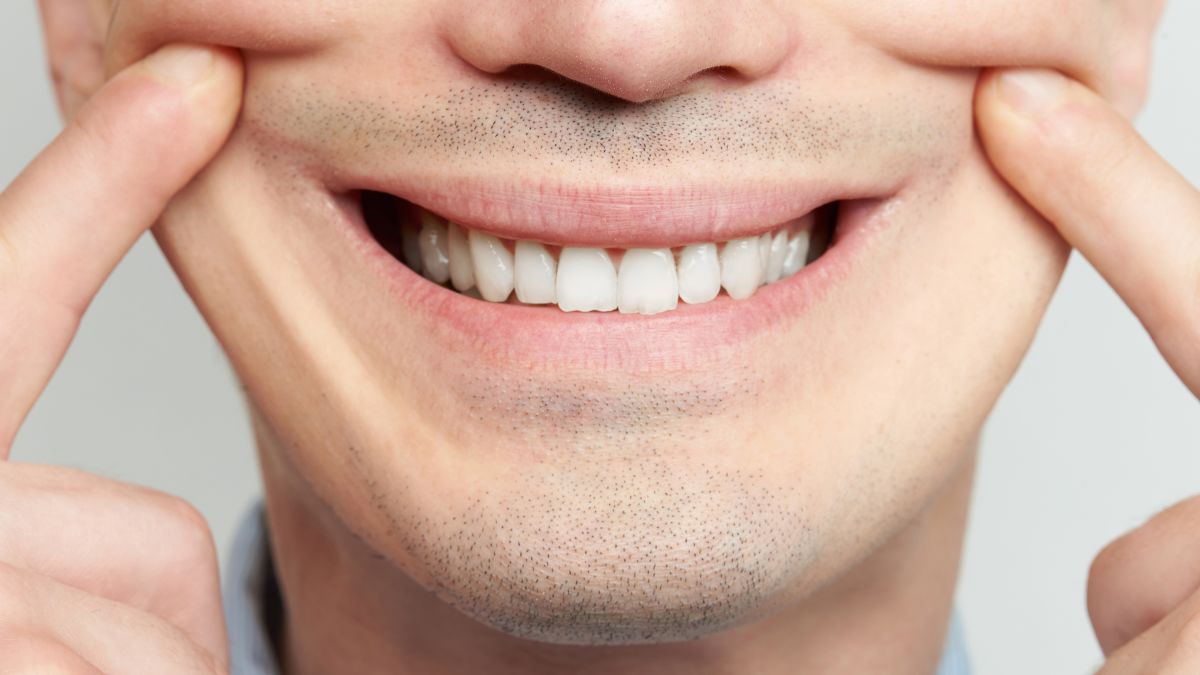January 7, 2021|כ"ג טבת ה' אלפים תשפ"א When You Get Your Vaccine, Don't Forget To Do This
Print Article
While necessary, wearing a mask is miserable. It is difficult to breath comfortably with a mask on and it is even harder to deliver a speech. And yet, those aren’t the hardest parts for me. Countless times over the last few months I find myself spotting someone across the Shul or in a store, smiling at them and wondering why they aren’t smiling back or acknowledging my bid for connection. Each time it takes a moment to remember that they aren’t ignoring me and it isn’t their fault. They never saw my smile because of the mask that covers half my face.
Being deprived of the ability to exchange smiles is a relatively small price to pay for protecting one another and preserving our collective health, but make no mistake, the lost smiles are also unfortunate casualties of this pandemic.
We need to smile and be smiled at. In complimenting and blessing Yehuda, Yaakov says, “His teeth are whiter than milk.” Of all virtues, why is Yaakov highlighting Yehuda’s teeth? The Gemara (Kesubos 111b) explains that Yaakov saw a quality in Yehuda he greatly admired and benefited from. Yehuda had a habit of smiling, of flashing the white of his teeth when seeing others. Indeed, the Gemara concludes when a person shows the white of his teeth to another by smiling widely, it is more beneficial than giving a cup of milk to drink. Why the comparison to milk?
In his Alei Shor, Rav Shlomo Wolbe explains that milk nourishes and nurtures growth. What milk does for the body a smile does for the heart and soul. He writes that just as plants require sunshine to live, converting the rays of the sun into nutrients, people convert smiles into energy and strength, and without it they wilt and perish. Dogs and cats can’t smile. Smiling at one another is part of what differentiates us as humans.
While our panim, our face, reflects our pnim, our internal thoughts and feelings, it also has an impact on those around us. Rav Yisroel Salanter famously said a person’s face is not his or her personal property; it is a reshus ha’rabim, part of the public space. If you are farbbissina, if you project a sour and negative disposition and countenance, you have placed a bor, a dangerous pit in the public thoroughfare. If instead you flash a smile, you can bring happiness to those around you, literally.
Dr. Nicholas Christakis, a physician at Harvard Medical School, authored a study concluding that happiness is contagious. The same one person yawning sparks a chain reaction of yawning from others, when one person smiles or is happy it leads to others’ happiness and draws smiles from others as well. Perhaps the greatest and most direct example of this phenomenon is a baby. When you smile at a baby they light up, but if you frown or make a sad or angry face, he or she will start crying.
In Pirkei Avos (1:15) Shammai teaches:
שַׁמַּאי אוֹמֵר...וֶהֱוֵי מְקַבֵּל אֶת כָּל הָאָדָם בְּסֵבֶר פָּנִים יָפוֹת
Shammai used to say, receive all people with a pleasant countenance.
Rav Ovadia Bartenura provides a powerful interpretation: “When you bring in guests to your home, do not give to them while 'your face is buried in the ground;' as anyone who gives and 'his face is buried in the ground' - even if he gave all of the gifts in the world - it is counted for him as if he did not give anything.” If you give someone, even generously, but you don’t smile, it is as if you gave nothing. The smile is more valuable than the resource you shared.
But don’t just smile because it will positively impact others. Smile because of the benefit it will bring you. A study from the University of California, Irvine recently showed that a genuine smile, the kind that brings up the corners of your mouth and produces creases around the eyes, can lower your heart rate and reduce the pain of a needle injection by up to 40 percent.
One of the researchers, professor of psychological science Sarah Pressman, said that they don’t yet fully understand why displaying a smile can help reduce pain and stress, but they have a theory they call the “facial feedback hypothesis”. “The thought is that the nerves in your face, that when those muscles are activating they actually send a message to your brain that’s telling you that you’re happy. … The basic premise is that somehow that expression is sending signals back to your mind, and it’s altering your emotion in some sense.”
Though there is much to be grateful and happy for, there is also much sadness and concern in these unprecedented times. Now more than ever, don’t wait to be happy to smile, start smiling and you will be happy and you will bring smiles and happiness to those around you.
So when it comes time for you to get your vaccine or to take the second dose if you got the first already, don’t forget to smile, not for the nurse or doctor, not for the camera, but for yourself.






